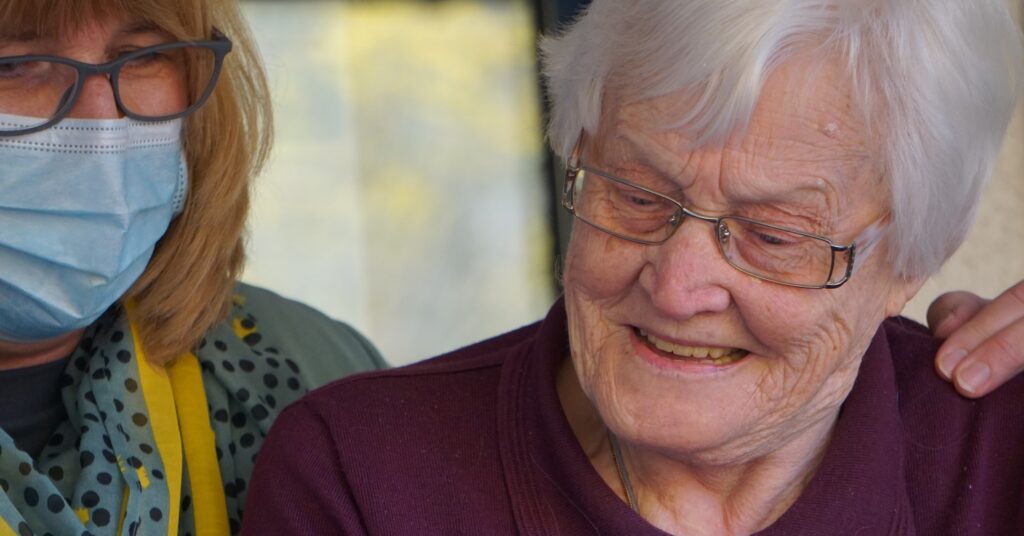
What Certifications Do Medical Social Workers Need?
Health care systems require social workers to assist individual patients [...]

Palliative care provides patients relief from pain and other symptoms of serious illness regardless of the diagnosis or stage of the disease. Patients in palliative care receive treatment from an interdisciplinary team of doctors, nurses, and other specially trained individuals with the common aim of improving quality of life for both patients and their family members. Palliative care may be offered to both adults and children living with, but not limited to:
Palliative care teams provide additional support to supplement patient care. They may help to alleviate symptoms including pain, nausea, anxiety, depression, fatigue, difficulty breathing, trouble sleeping, and more. They design palliative care plans covering advance care planning, symptom management, pain management, counseling support, care techniques, and referrals to outside specialists.
According to Torrie Fields, strategic advisor at The Coalition to Transform Advanced Care (C-TAC), palliative care emerged primarily in conjunction with hospice care. Today, however, “It’s really around keeping people healthier for longer, and aligning their care goals with quality measures, and making sure they’re actually getting the care that they need.”
What does a palliative care social worker do? This article answers that question and also discusses:
Palliative care social workers address patient concerns and help them manage their conditions. They consult with patients to determine their symptoms, assess current treatments, and explore how their diagnosis affects both them and their families. They develop care plans and tailor them to what matters most to patients and their families. Palliative care social workers also help patients navigate their treatment options so they can make decisions that align with their goals and values.
Social work is a core component of palliative care. Palliative care social workers collaborate with cross-functional teams and bridge the gap between health and social care. They offer many forms of support, including:
According to the Association of Palliative Care Social Workers, the profession aims “to see whole people living within whole families rather than as an individual with a set of specific problems to solve.” Palliative care social workers provide support as clients “come to terms with what is happening to them or someone close to them and support them to continue to live as they choose for as long as they can.” They help clients secure necessary services, provide psychological support, and counsel them as they navigate a challenging chapter in their lives.
| University and Program Name | Learn More |
|
Virginia Commonwealth University:
Online Master of Social Work
|
Becoming a palliative care social worker requires a mix of training and skills, summarized below.
In addition to meeting the educational requirements, hours of field experience, and earning relevant certifications (more on those below), palliative care social workers should cultivate certain traits to affect positive outcomes in their field. They should be able to demonstrate:
Palliative care social workers need to first obtain a bachelor’s degree in social work, the minimum base requirement for entering the field. However, many choose to pursue a Master of Social Work (MSW) or even a doctorate. Make sure the school you choose is accredited by he Council on Social Work Education (CSWE), as most states require social workers to graduate from colleges with accredited degree programs to meet eligibility requirements for licensure.
Social work degree programs typically emphasize courses in:
A critical component of any palliative care social worker’s educational journey is field experience and practicum. Social work degree programs require a practicum, which you can complete in a hospice or palliative care setting. In addition to the practicum, you can also complete a paid internship to earn college credit and a potential paycheck.
Certifications represent a powerful opportunity to showcase your credentials and qualifications to potential employers and patients. A certification demonstrates that you’ve met high standards of practice and have obtained third-party validation of your expertise.
The National Association of Social Workers (NASW) offers popular certifications, including:
The Social Work Hospice and Palliative Care Network offers an Advanced Palliative Hospice Social Worker certification for those with both bachelor’s and master’s degrees.
Although a Master of Social Work is not required to enter a career as a palliative care social worker, many social workers in the industry choose to earn their MSW to set themselves apart and to provide optimal clinical care to their patients.
Social workers who have master’s degrees can offer counseling services as clinical social workers. Those who offer therapy services typically also need to earn licensure as a licensed master social worker (LMSW) or licensed clinical social worker (LCSW). Social workers with an LCSW can apply clinical services in therapy for clients.
Online Master of Social Work degrees are more accessible than ever. With so many options, it can be difficult to choose the one that’s right for you. Syracuse University, Howard University, Columbia University, Rutgers University, and Indiana University offer great online MSW programs.
Tulane University’s online Master of Social Work program offers all the benefits of the school’s on-campus programs, including:
Students in the program engage in culturally relevant social work focusing on approaching people and communities as equals with a right to self-determination. The program builds upon students’ professional skill sets, critical thinking skills, and passion for community care. Tulane graduates’ first-time licensure exam pass rates are consistently higher than the national average.
Virginia Commonwealth University’s School of Social Work offers an online Master of Social work with an innovative curriculum, diverse field experiences, and proactive research priorities. U.S. News and World Report ranks the graduate program among the nation’s top 30 social work programs. Participants in VCU’s MSW program benefit from support from a student success advisor, accessible faculty, a student support coach, and a writing advisor.
Regardless of the path you choose, palliative care social work can be a challenging field, as your work involves helping patients and their families cope with severe illness and death. Social workers who understand how culture affects illness and the end-of-life experience of individuals and families will be well-equipped to individualize care and intervene in the psychosocial effects of illness, pain, dying, and death.
(Last Updated on February 26, 2024)
Questions or feedback? Email editor@noodle.com

Health care systems require social workers to assist individual patients [...]

No one ever went into hospice social work to get [...]

The average salary for a medical social worker is $62,000, [...]

Medical social workers help clients at a variety of service [...]

Palliative care social workers need a broad range of hard [...]
Categorized as: Social Work, Social Work & Counseling & Psychology